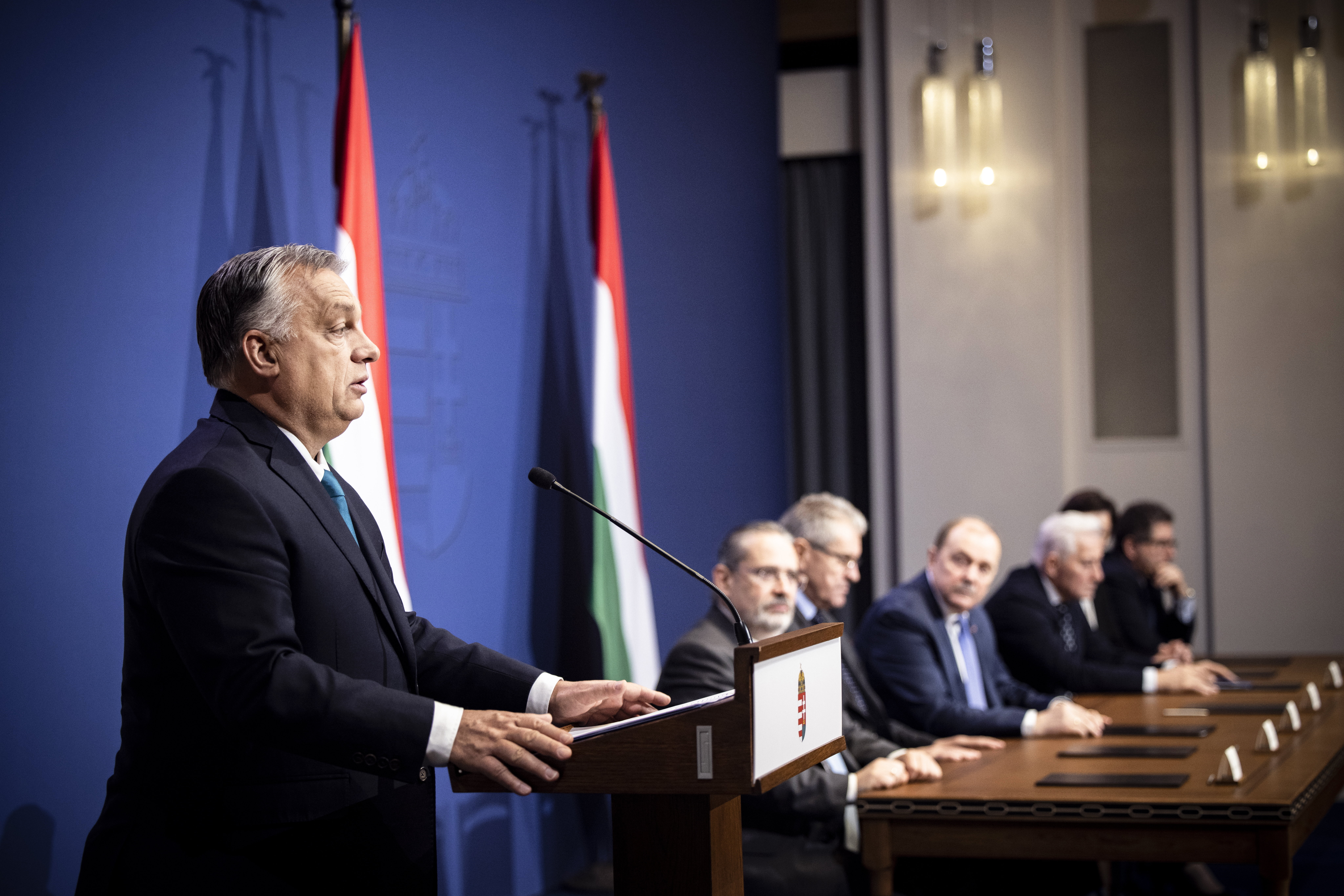
PM Orban: Everyone should benefit from growth
Growth is a success of all Hungarians, so everyone should benefit from it, Hungarian Prime Minister Viktor Orban said after signing the wage agreement in Budapest on Monday.
At the signing ceremony of the document, Mr Orban explained that at the beginning of their governance, their most important commitment was to create a work-based economy. He said:
the starting point was that if there is work, there is everything.
He noted that taxes on labour are constantly being reduced, and the level of taxes on labour in Hungary has also been reduced by a quarter since 2010.
PM Orban stressed that the minimum wage is an equation of at least three factors. Employees who want higher wages, employers want to stay competitive and the government has a duty to keep the country’s finances in order. Recogition was needed to keep wages rising, remain competitive and keep finances in order, he said.
He stressed that after 2010, they recognised that instead of ideological reasoning, te government must focus on representing people, which would result in a common ground to reach an agreement between trade unions and employers.
The prime minister said that there is robust economic growth, one of the biggest in Europe, and there is hard work behind it. This growth is a common success of all Hungarians, so everyone will benefit from it, even retirees, he declared.
He stated that the guaranteed minimum salary will be 260 thousand forints (about 720 euros) and the minimum wage will be 200 thousand forints (about 560 euros). Along with them, the wages of public work will also rise significantly, he added.
He said work was a good thing, provided it is rewarded with a fair wage. Between 2002 and 2010, the real value of the minimum wage in Hungary fell by 2 percent, while in the other V4 countries it rose by 30 percent, he added. He emphasized that after 2010, the key task was to abandon the practice of paying a low minimum wage; to offer work instead of benefits to everyone who was fit to work, and to achieve that work is valued not only morally but also financially.
The success of this approach is evidenced by the fact that the minimum wage has risen by a total of 172 per cent over the past 12 years, and this is the greatest success achieved by the Hungarian trade union movement, he said. The fact that everyone can work is the employers’ greatest success and that finances and the budget are all in order is the government’s success, he listed.

Hungary’s state news agency (MTI) /PM’s Press Office / Zoltan Fischer
All wage agreements involve not only a hike in minimum wages but also a reduction in taxes and contributions payable by employers, PM Orban said. If taxes are lower, businesses can pay this money to workers, businesses will have more money left with them and families can also have more, he pointed out.
He said this money could be used to create new jobs and to increase monthly payment to employees, which would ultimately enhance economic performance further. A tax system that can improve competitiveness is the Archimedean point of the current work-based economy. Tax cuts have created the opportunity for stakeholders each year to discuss how high wages can be raised, he explained.
The government has proposed an alliance to trade unions and employers, PM Orban said, adding that „we have proposed an alliance for action to the world of work”. The rise in the minimum wage for unskilled work and in the guaranteed wage minimum for skilled work will lead to higher average wages. Therefore, today’s news is good news not only for those earning the minimum wage or the guaranteed wage minimum, but for everyone else who works, he highlighted.

